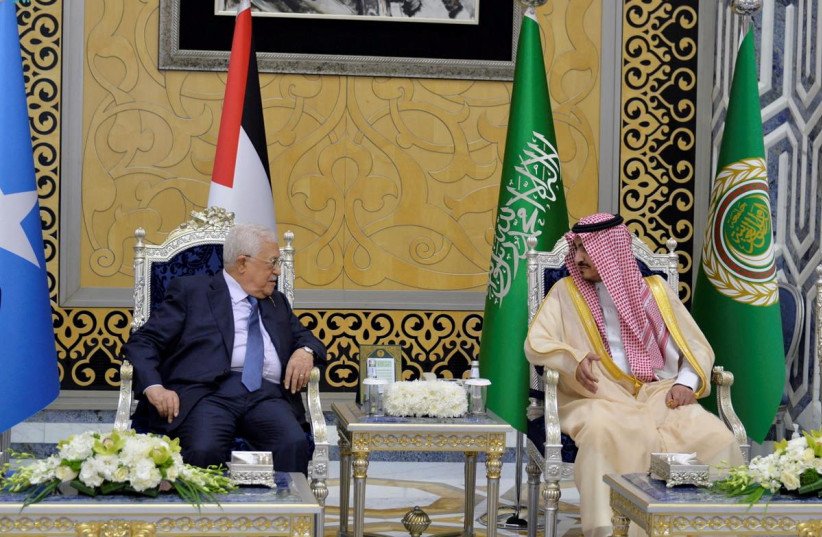Saudi envoy to Palestinians was known to Israel but not coordinated
Israel knew that Saudi Arabia planned to appoint a non-resident ambassador to the Palestinians, but the matter was not coordinated with Israel, Foreign Minister Eli Cohen told 103FM on Sunday.
“They didn’t coordinate with us and they didn’t have to coordinate with us,” Cohen said. When the interviewer, Udi Segal, said that Israel did not know about the Saudi appointment, clarified that knowing and coordinating are not the same thing.
Saudi Arabia named its first ambassador to “Palestine” on Saturday. The kingdom’s ambassador to Jordan, Nayef bin Bandar Al Sudairi, will serve as non-resident ambassador extraordinary as well as “consul-general in Jerusalem,” in addition to his responsibilities in Amman.
The move came as the US and Saudi Arabia have been negotiating an Israeli-Saudi peace agreement, along with some kind of advanced defense cooperation between Washington and Riyadh.
Cohen said the ambassador’s appointment came “on the background of the advancement of talks between the US and the Saudis regarding Israel. The Saudis wanted to send a message to the Palestinians that they didn’t forget them.”
 Palestinian President, Mahmoud Abbas, is received by Deputy Amir of Makkah, Prince Badr Bin Sultan, as he arrives to attend the Arab League Summit in Jeddah, Saudi Arabia, May 18, 2023 (credit: SAUDI PRESS AGENCY/HANDOUT VIA REUTERS)
Palestinian President, Mahmoud Abbas, is received by Deputy Amir of Makkah, Prince Badr Bin Sultan, as he arrives to attend the Arab League Summit in Jeddah, Saudi Arabia, May 18, 2023 (credit: SAUDI PRESS AGENCY/HANDOUT VIA REUTERS)Israel won’t allow opening of Saudi consulate for Palestinians in Jerusalem
The fact that Riyadh named Sudairi to Jerusalem does not mean there will be a Saudi consulate to the Palestinians in Israel’s capital, a move that would have had to have been coordinated with Israel.
“We will not allow the opening of any diplomatic representation [to the Palestinians] in Jerusalem,” Cohen said.
Saudi Arabia has long said Israel must make concessions related to the Palestinians before it would recognize the Jewish state.
However, Cohen said that “the Palestinian matter is not the central matter in the talks… Since the Likud, led by [Prime Minister Benjamin] Netanyahu, brought the last three peace agreements, it means that the Palestinians are not a barrier to peace. That is not the matter that will prevent it.”
The negotiations are thus far only between Washington and Riyadh, and Jerusalem has not yet been brought in, but US officials have updated Israel about the Saudis’ demands. While Netanyahu agreed to stop plans to apply sovereignty to Israeli settlements in Judea and Samaria in exchange for the Abraham Accords with the United Arab Emirates in 2020, diplomatic sources have said that Saudi Arabia expects Israel to take proactive steps toward a Palestinian state.
Riyadh has also asked Washington for help in developing a civilian uranium enrichment program as part of the agreement. Cohen reiterated his suggestion that, instead, the US offer the kingdom a nuclear defense pact by which it would strike Iran if it bombed Saudi Arabia.
While admitting there are many obstacles, Cohen said: “Looking at the data, I think we can reach agreements. It’s complex, but possible.”
The foreign minister estimated that normalization could happen in 9-12 months.
“What matters in the end are interests. Saudi Arabia has an interest in an agreement no less than Israel does,” he added.





Comments are closed.